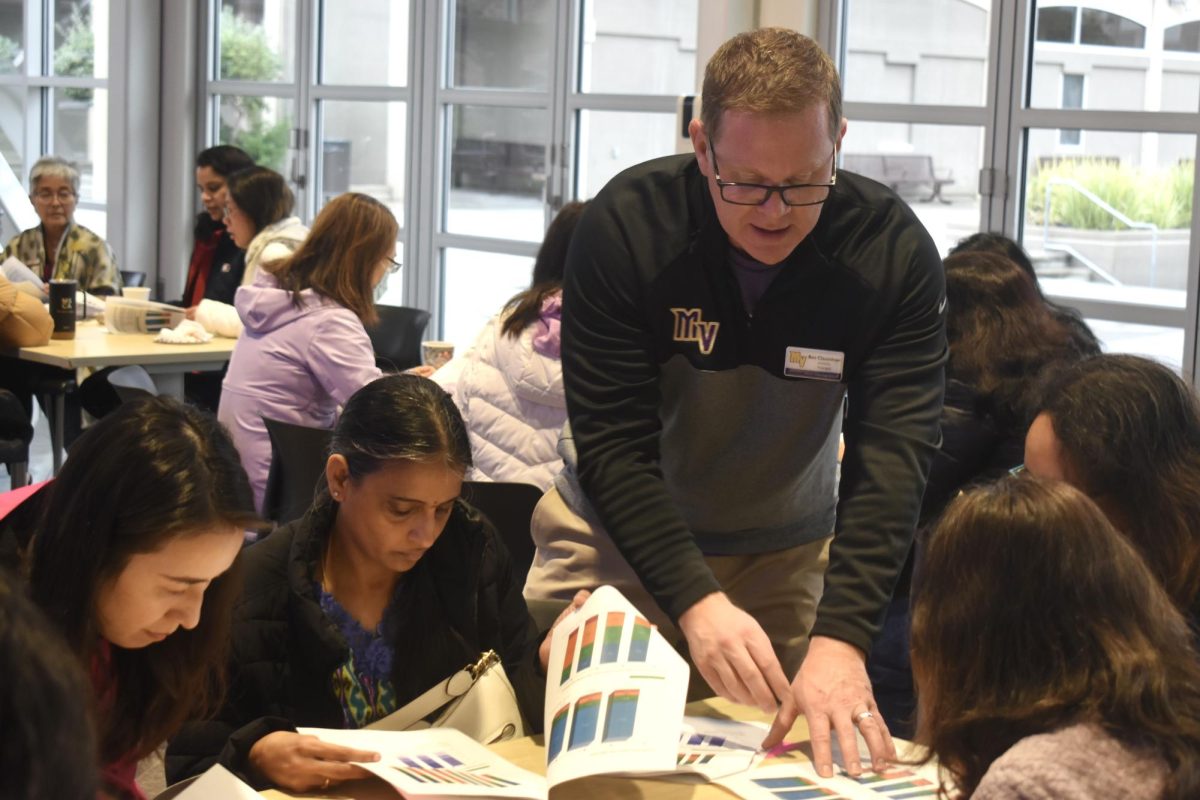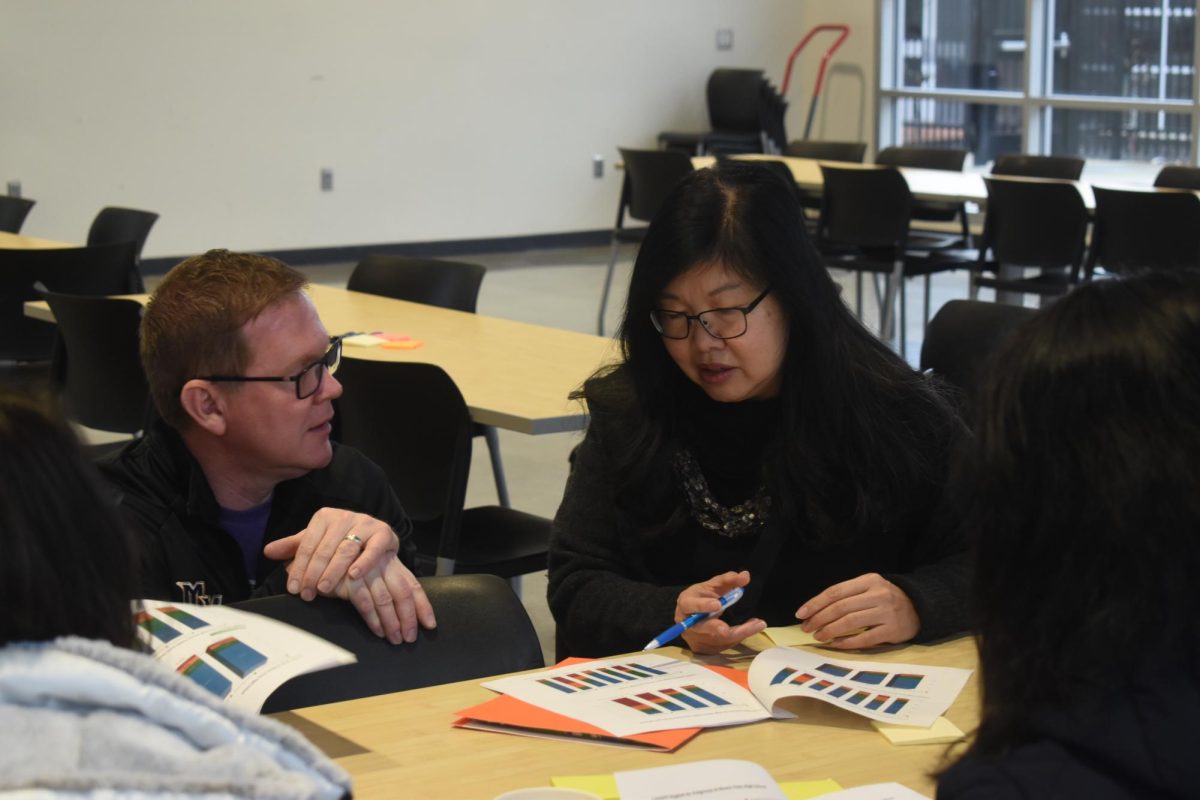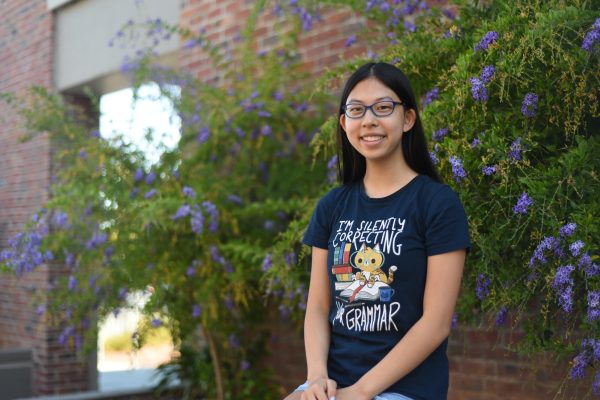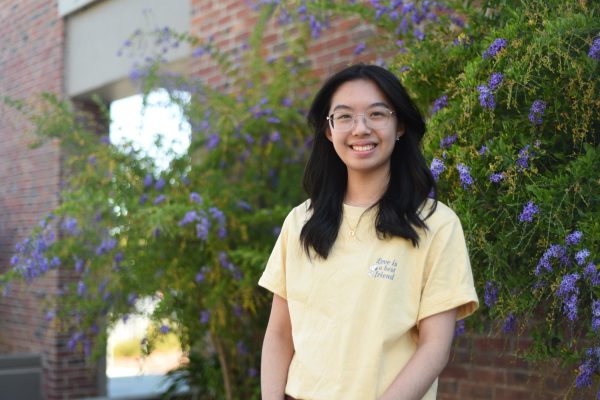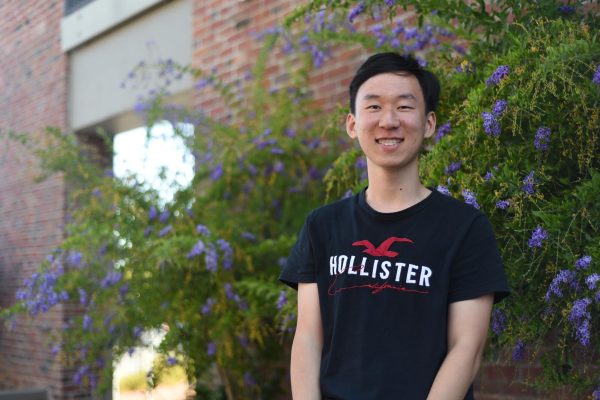MVHS Parent Teacher Student Association held two Western Association of Schools and Colleges meetings on Friday, Feb. 7. WASC is a school accreditation organization that supports and advances school improvement. The intent of the meeting was to elicit parent and student feedback on MVHS’s four personalized school goals. Parents attended the event, hoping to educate themselves further about the school’s inner workings.
Every six years, all school staff compile a report together on a school’s current progress on their goals based on their consultation with a WASC official. According to Principal Ben Clausnitzer, MVHS’s four WASC goals, which overlap with FUHSD’s, encompass four aspects of student learning and well-being. One of these goals target four main underrepresented groups: English language learners, socioeconomically disadvantaged students, Hispanic and Latinx students and students with disabilities.
“WASC reflection sessions have been held for two or three years already, and they help me, as a principal, get more people’s perspectives and give me the opportunity to hear more voices rather than just our administrators’ or instructional leadership team’s voices,” Clausnitzer said. “We get to hear from the community as well, and get the chance to have a broader kind of feedback system to progress on our goals.”

PTSA Vice President and parent Wei Qiang recently moved to Cupertino from Canada with her family. She says that although she wasn’t originally aware of what the meeting was about, she soon found it insightful, learning more about MVHS’s high graduation rates and the steps the school community is taking to increase a sense of welcomeness. Although students were allowed to attend the meeting, with an afterschool session made specifically for this reason, Qiang, who attended both sessions, recalls it was mostly parents who attended, with most being familiar with and interested in WASC. As a parent of a freshman, Qiang also says it is important for her to get involved with her community.
“We moved from another country,” Qiang said. “I want to know this community better and to become part of it. So in my opinion, the most effective and valuable way to do this and contribute to the community is by joining the PTSA.”
Every three years, schools are required to publish a mid-progress report on their advancement towards their six year WASC goals. As one of the WASC leads for last year’s mid-cycle report, English teacher Jessica Kaufman believes that informing everyone about the school’s goals through these meetings are crucial to building school community and culture, as it affects campus wellness.
“The school community is not just the school itself,” Kaufman said. “It’s literally the people who surround it as well, including parents, since they also have a say in what the school buys and does and therefore are universally part of the school community too. So, it’s all about making sure that everyone is given equitable access to education and treated the same.”
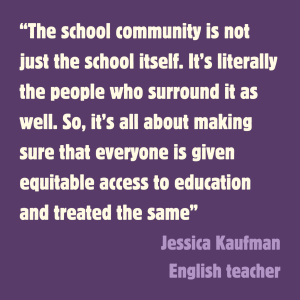
According to Clausnitzer, the question of revising the school’s college prep courses, apart from AP and Honors courses, to fit the state standard, was also emphasized during MVHS instructional leadership team meetings for the coming school year. He cites this to a WASC Visiting Committee’s request that has resurfaced during conversations with the instructional leadership team. Although he notes that the state’s standard of “essential learnings” is open to a lot of interpretation, one way MVHS could handle the goal would be for teachers to standardize their teaching of a subject, though this could require many teachers to reframe their current curricula.
“One teacher could write a question that all the students can solve,” Clausnitzer said. “Another teacher could write one that is a more difficult question, has more rigor to it, and not as many students could solve it. So teachers need to have a conversation, guided by state standards, to agree on what level of rigor for that essential learning. It’s kind of like grounding your work in the context of access for all students to college prep courses.”
A core aspect of MVHS’s target goals includes increasing overall A/B/C student grades to over 98%, which according to Clausnitzer, MVHS has achieved for the past four years. When working toward this, he pushed for intervention support for the teachers, which encompasses providing the opportunity for retaking assessments. The efforts in raising student grades focuses primarily on preparing struggling students to meet UC/CSU eligibility.

For paraeducator Eddy Puga, who mainly works with students in special education classes, this is not just modifying class assignments and curriculums, but also using devices such as pinboard graphs and modified calculators that are more accessible to his students. Puga also says his work heavily focuses on the social-emotional aspect of the learning environment. He believes a large portion of bridging inequality gaps between students in the four underrepresented groups, especially for students with disabilities, is just to create a stronger sense of community. He cites MVHS’s Ohana club, which provides an inclusive and fun environment for students with disabilities and general education students to get to know each other, as a major contributor to this for his own students.
“Just making our students feel welcomed, that alone goes a long way,” Puga said. “It makes them feel like a part of this school. Ohana club opens up another door for them, because now, walking with my students, they’ll see students that they met in Ohana and call them by their name, say hi to them. Without Ohana happening or being available, those types of connections and relationships can’t happen. I think it goes a long way, and it really makes an impact on our students.”
In response to feedback from the mid-cycle report, MVHS created intervention programs intended to better support student success in accordance with MVHS’s Professional Learning Committee teams. Clausnitzer calls these equitable learning practices, and they focus on equity, social emotional learning and grading practices. The piloted admin student assistance team four years ago, which helped administrators monitor students in the four WASC groups who receive Ds or Fs, has led to the Guided Studies program. The program is paid by MVHS’s own budget and gives assistance to students who need more academic support. Teachers are now required to implement at least three of six equitable grading practices, up from two last year. This year, all teachers were also encouraged to implement the Wayfinder SEL program in their classrooms, all in the effort to increase student wellbeing.
Such efforts have provided results — Clausnitzer says families in the reflection session especially highlighted an improvement in all students feeling valued, connected and having a sense of belonging between the 2018-2019 and 2023-2024 school years. He says this data indicates a unique cultural change, something that is not often seen in data, which is a reassuring source of feedback that affirms the direction MVHS has been moving in.
“Culture change doesn’t happen in one year.” Clausnitzer said. “There isn’t one thing that makes it happen. There’s a saying, if you want to go far, go slow. Oftentimes, you end up going slow but you have a more lasting impact. Since now we’re in year four, we’re starting to see data in a variety of ways, and start to see this positive culture shift.”





